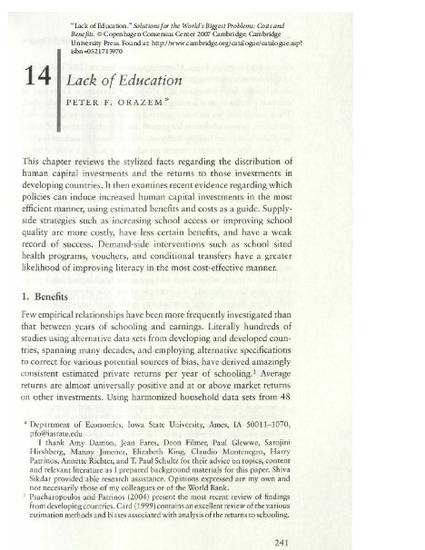
Contribution to Book
Lack of Education
Solutions for the World's Biggest Problems: Costs and Benefits
Document Type
Book Chapter
Disciplines
Publication Version
Published Version
Publication Date
1-1-2007
Editors
Bjorn Lomborg
Publisher
Cambridge University Press
Place of Publication
Cambridge, UK
Abstract
This chapter reviews the stylized facts regarding the distribution of human capital investments and the returns to those investments in developing countries. It then examines recent evidence regarding which policies can induce increased human capital investments in the most efficient manner, using estimated benefits and costs as a guide. Supplyside strategies such as increasing school access or improving school quality are more costly, have less certain benefits, and have a weak record of success. Demand-side interventions such as school sited health programs, vouchers, and conditional transfers have a greater likelihood of improving literacy in the most cost-effective manner.
Copyright Owner
Cambridge University Press
Copyright Date
2007
Language
en
File Format
application/pdf
Citation Information
Peter F. Orazem. "Lack of Education" Solutions for the World's Biggest Problems: Costs and Benefits (2007) p. 241 - 262 Available at: http://works.bepress.com/peter-orazem/86/

This chapter is from Solutions for the World's Biggest Problems: Costs and Benefits (2007): 241. Posted with permission.